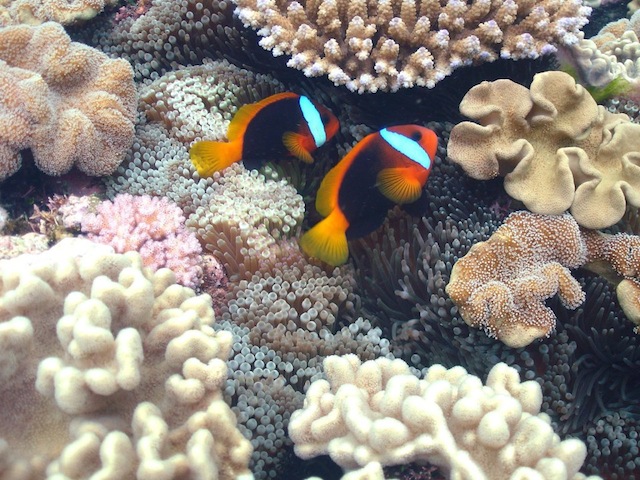SUMMARY
This is AI generated summarization, which may have errors. For context, always refer to the full article.

SYDNEY, Australia (UPDATED) – The Australian government admits the Great Barrier Reef has been neglected for decades after a study showed it has lost more than half its coral cover in the past 27 years.
Environment Minister Tony Burke said research released Tuesday, October 2, by scientists from the Australian Institute of Marine Science and the University of Wollongong should be setting off alarm bells across the country.
“I reckon the report would have sent shockwaves through a whole lot of households,” he told ABC television late Tuesday.
“We’ve all heard about damage to the reef over the years, but that 50 percent figure, I think, rang a warning bell loud and clear for many people.”
The study said coral cover on the heritage-listed reef — the world’s largest — could halve again by 2022 if trends continued.
Intense tropical cyclones — 34 in total since 1985 — were responsible for much of the damage, accounting for 48 percent, with outbreaks of the coral-feeding crown-of-thorns starfish linked to 42 percent.
Two severe coral bleaching events in 1998 and 2002 due to ocean warming also had “major detrimental impacts” on the central and northern parts of the reef, the study found, putting the impact at 10 percent.
Burke said the current government was addressing some of the issues raised but “there’s no doubt that there’s been a level of neglect for decades which, if it had been dealt with otherwise, we’d be in a much better situation now”.
While little could be done about cyclones, Burke said tackling the problem of the large, poisonous and spiny starfish, which feast on coral polyps and can devastate reef cover, was under way.
“They have divers go down and one at a time, into the crown-of-thorns starfish, they inject a protein called sodium bisulphate and that then kills them,” he said.
“It’s painstaking, you have to go through it one at a time, but that has been the most effective way we’ve ever had of being able to kill crown-of-thorns in very large numbers.”
The study said improving water quality was key to controlling starfish outbreaks, with increased agricultural run-off such as fertilizer along the reef coast causing algal blooms that starfish larvae feed on.
Burke said the government, through its Reef Rescue program, had contributed hundreds of millions of dollars to addressing the issue over the past five years.
“The main work — and that’s where $200 million has gone into — is working to avoid the impacts of run-off (from) land,” he said.
“And it’s been projects with cattle graziers and in particular with cane growers where we’ve been upgrading their equipment, upgrading their technology and having a massive difference to the impact of how much chemical is going into the ground and how much run-off as a result is then going into the reef.”
The study findings were drawn from the world’s largest ever reef monitoring project involving 2,258 surveys over 27 years.
With a multi-billion-dollar tourism industry associated with the reef and the thousands of jobs it creates, Burke admitted its preservation was as much an economic issue as an environmental one.
“There’s massive economic consequences associated with it,” he said.
“But before you even get to that there is a responsibility that we have in managing it well, and this report is a wake up call to anybody who thought we could just let things go as they were.”
UNESCO warned it was considering listing the reef as a world heritage site in danger earlier this year due to the unprecedented gas and coal mining boom in northern Australia and increasing coastal development. – Agence France-Presse
Add a comment
How does this make you feel?
There are no comments yet. Add your comment to start the conversation.